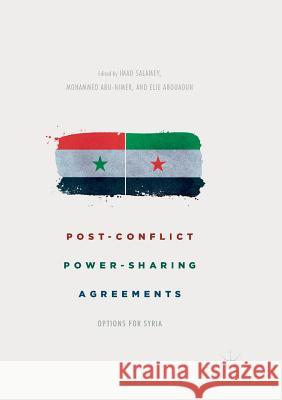Post-Conflict Power-Sharing Agreements: Options for Syria » książka
topmenu
Post-Conflict Power-Sharing Agreements: Options for Syria
ISBN-13: 9783319867786 / Angielski / Miękka / 2018 / 191 str.
Kategorie BISAC:
Wydawca:
Palgrave MacMillan
Język:
Angielski
ISBN-13:
9783319867786
Rok wydania:
2018
Wydanie:
Softcover Repri
Ilość stron:
191
Waga:
0.25 kg
Wymiary:
21.01 x 14.81 x 1.12
Oprawa:
Miękka
Wolumenów:
01
Dodatkowe informacje:
Wydanie ilustrowane











